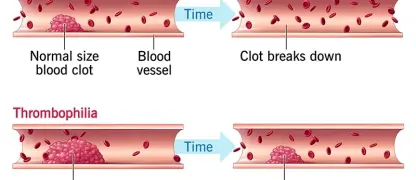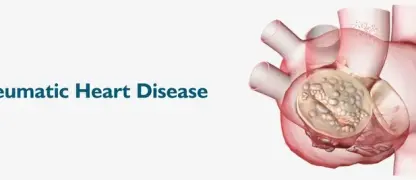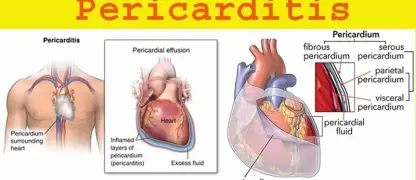Ignoring an irregular heartbeat can be dangerous. Atrial Fibrillation significantly increases your stroke risk, but understanding it is your best defense. Don't miss this crucial information that could protect your heart health.
What are the main causes of Atrial Fibrillation?
- The most common afib causes include underlying heart conditions like high blood pressure, coronary artery disease, and previous heart attacks that damage heart tissue.
- Other risk factors are advancing age, obesity, diabetes, excessive alcohol consumption, and a family history of the condition, which can all contribute.
- Sometimes, triggers like stress, caffeine, or illness can initiate an episode in susceptible individuals, leading to the chaotic heart rhythm of afib.
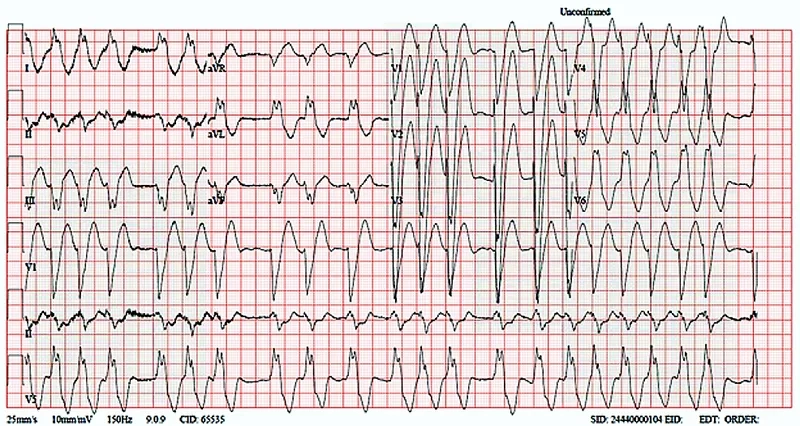
Key symptoms of Atrial Fibrillation to watch for
- Key atrial fibrillation symptoms include a quivering or fluttering heartbeat (palpitations), fatigue, dizziness, shortness of breath, and chest pain or pressure.
- Some people may experience no symptoms at all, making routine check-ups important for early detection and preventing complications like an increased stroke risk.
- A rapid heart rate, known as afib with RVR (rapid ventricular response), can cause more severe symptoms and often requires immediate medical attention.
How can you prevent Atrial Fibrillation effectively?
- An effective afib treatment plan often starts with afib medications to control heart rate and rhythm, and anticoagulants to lower the atrial fibrillation stroke risk.
- Lifestyle modifications such as a heart-healthy diet, regular exercise, limiting alcohol, and managing stress are crucial for living with afib successfully.
- For some patients, procedures like an afib ablation may be recommended to electrically isolate abnormal heart signals and restore a normal rhythm.
>>> Learn now: Stroke – causes, warning signs and care
Image of the disease Atrial Fibrillation - showing an EKG rhythm strip
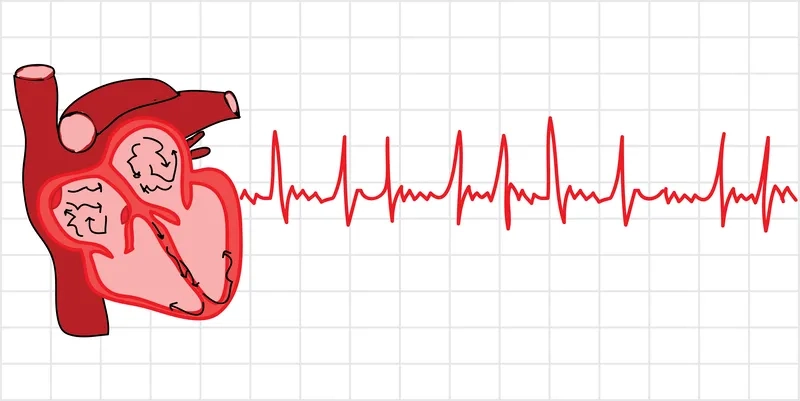


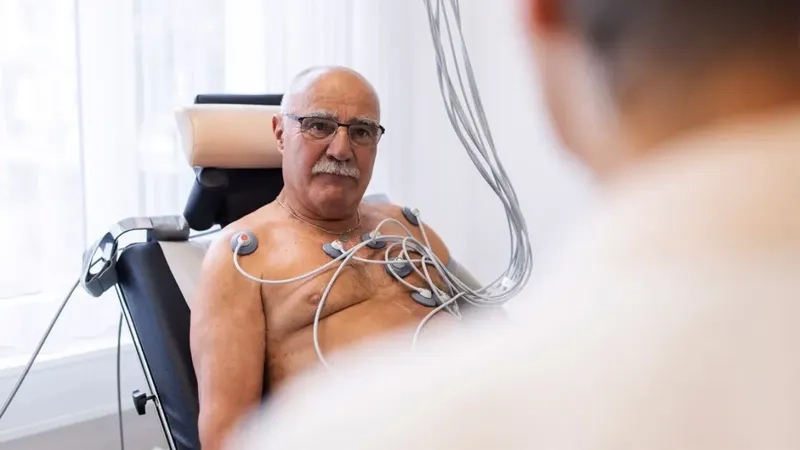
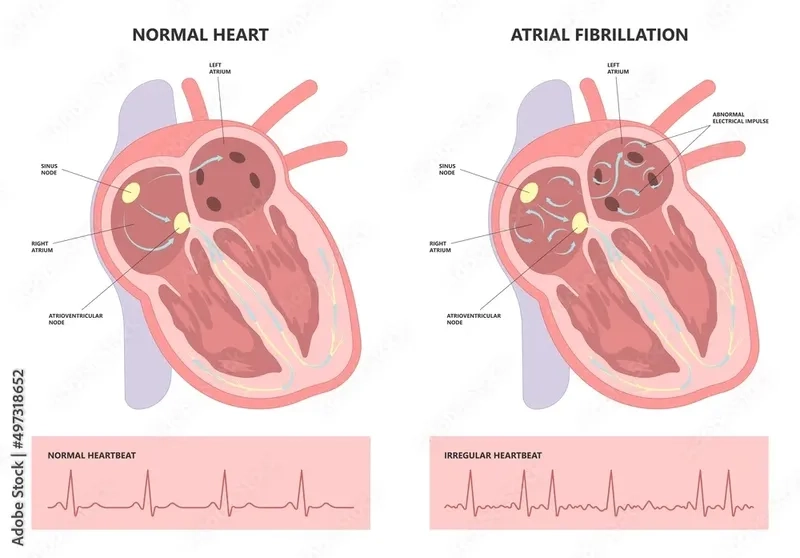
>>> Don't miss: Peripheral artery disease – symptoms and treatment
Don't dismiss the signs of afib. Early diagnosis and a proactive treatment plan are essential for managing your condition and reducing serious risks. Speak with your doctor about any heart rhythm concerns you have.
>>> Read more here: Arrhythmia – types, causes and treatment options



